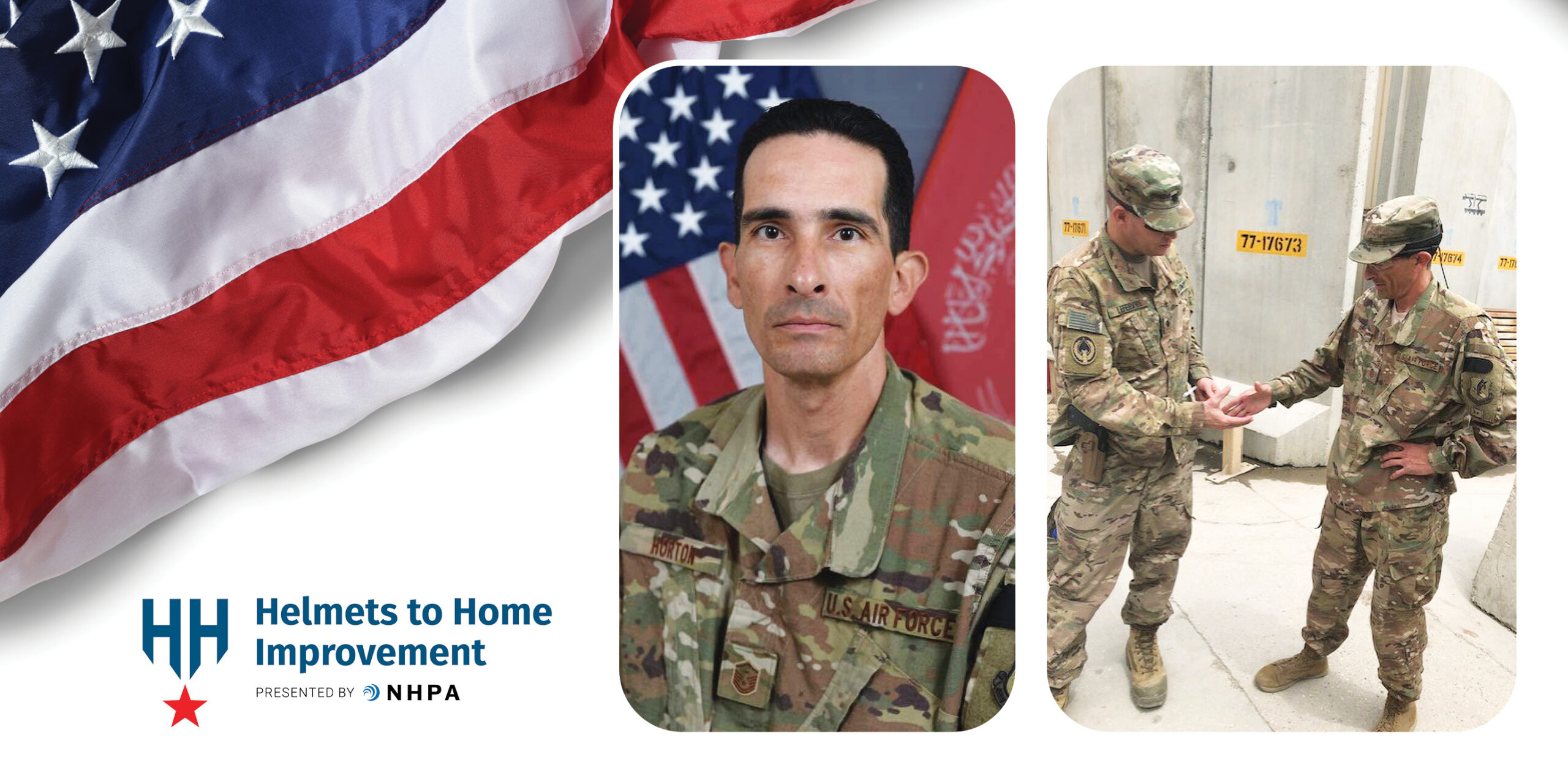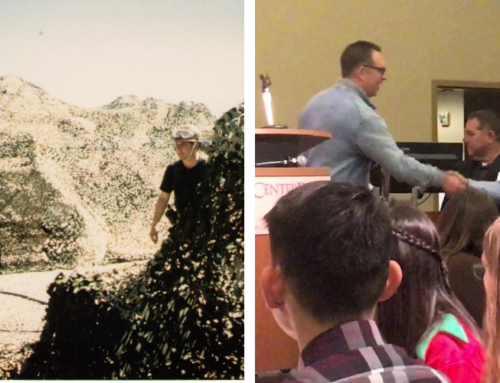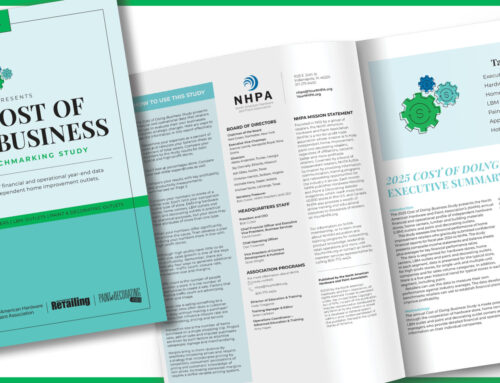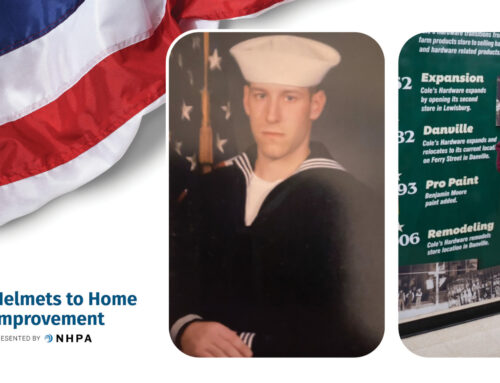After watching his father serve in the U.S. Air Force for 20 years and growing up in the military community, Andy Horton was determined to follow the same path for his own life. While he achieved his dreams of serving in the military, his journey wasn’t without a few bumps in the road.
“Originally, I wanted to be an F-16 pilot but my lackluster performance in high school created an obstacle for me, so I opted to go to college,” Andy says. “After two years working a full-time job and attending school full-time, my dad saw me struggling and introduced me to a recruiter who used to work for him. That got me started down the road.”
In April 1995, Andy joined the U.S. Air Force and served in active duty continuously until his retirement in May 2019. Starting with basic training at Lackland Air Force Base in San Antonio, Horton attended technical school at Keesler AFB in Biloxi, Mississippi, and served at his first permanent duty station at Yokota Air Base outside of Tokyo, Japan.
During his time in the military, Andy served at Air Force bases across the U.S. in New Mexico, Nebraska, Nevada and Alabama and across the world in Honduras, Greenland, Portugal, Belgium, Turkey, Germany and Italy. He also deployed to Bagram Air Base in Afghanistan from January through September 2018.
When he first entered the Air Force, Andy was a meteorological and navigation (METNAV) systems technician, responsible for the maintenance of weather and navigation systems in support of flight operations.
In the early 2000s, the METNAV career field merged with a large portion of the ground radio specialty, transforming Andy into an airfield systems technician and adding ground-to-air air traffic control communications to his list of responsibilities.
“After about 18 years in this career field, I was selected to attend the First Sergeant Academy. After graduating, I became a first sergeant for the last five-and-a-half years of my career,” Andy says. “First sergeants advise commanders on the readiness, health, morale, welfare and quality of life of the Airmen and their families to ensure a mission-ready force. This job required everything from counseling to giving legal advice to disciplinary recommendations and more.”
During his time in service, Andy says his favorite part of serving was traveling the world learning about and living within many different cultures.
“Even in the war-torn country of Afghanistan, there were great moments, like when I got to share tea with a carpet vendor and learn about his family,” Andy says. “I was stationed in eight different countries and traveled to many more. Each had their own peculiarities, and I enjoyed learning about each of them.”
The Next Chapter
After Andy retired from the military, the home improvement industry wasn’t a natural first choice. He initially took a year off from anything to decompress and enjoy a slower pace of life after the taxing responsibilities of the military.
“After about a year off, I realized that I spent the majority of my time cleaning my two-bedroom apartment,” he says. “While my apartment was spotless, I thought that there was surely something more productive I could do with my time.”
Horton started searching and applying for jobs online that piqued his interest, and a job at a hardware store caught his eye because it was so different from what he did in the Air Force and a great opportunity to learn a very different set of skills. Andy applied, interviewed and was hired at Ziggy’s Home Improvement in Spokane, Washington, as a loader in the lumberyard.
He was quickly promoted to yard foreman and then transitioned inside the store, working the cashier stand and then the sales counter. For a year, Andy filled in as the human resources manager and then moved back to the sales counter. Currently, Andy is in charge of keeping the store stocked with merchandise and maintaining the warehouse where excess inventory is stored.
Skills That Cross Over
Andy says his favorite part of working in the independent channel is helping customers.
“Every day brings a whole host of customers with a whole host of problems they need help solving. These problems can range from the very simple, like a list of materials, to the very complex, like someone wanting to build a deck with no idea where to start,” Andy says. “I enjoy working through puzzles and really like seeing people leave with smiles on their faces.”
While a job at a hardware store appealed to Andy because it was so different from what he had been doing in the military, he found that many of the skills he gained in the military were helpful in his new career.
Before he joined the military, Andy says he was extremely introverted and the military helped him break out of his shell.
“While I would still not identify myself as extroverted in the least, I would say that I now have extroverted tendencies. While I do not seek to be anywhere close to the center of attention, I no longer shy away from people,” Andy says. “That is rather important when helping people is your primary business. While my tools of the trade are vastly different now, I would say that people are still my business.”
Andy’s time in the Air Force also taught him to be adaptable and flexible, as he often had to fill in for a variety of jobs where he had little to no experience but where no was never an appropriate answer.
“We were almost always shorthanded, but the job still had to get done,” Andy says. “You learn to be adaptable to different situations and flex to fill needs.”
Those skills of adaptability are found in most military veterans, making them an excellent fit for the home improvement industry, Andy says. Military service has taught them to be flexible out of necessity, and most veterans continue to carry those traits throughout the rest of their lives. Veterans can also be trusted to work independently and are great problem-solvers.
“Most veterans will surprise you with the ability to efficiently complete assigned tasks with little to no supervision,” Andy says. “Due to constant personnel shortages and changes and ever-changing environmental and mission changes, veterans have a great ability to identify problems and devise solutions to overcome obstacles in pursuit of mission accomplishment. Those skills don’t go away.”
Paying Tribute
While there is no way to repay the sacrifices made by veterans of the armed forces, the North American Hardware and Paint Association (NHPA) recognizes that not only have these individuals made a lasting impact on their country, but they are also a prominent and positive influence within the home improvement industry.
To honor the ongoing impact military veterans make throughout the home improvement industry,
NHPA launched the Helmets to Home Improvement recognition program, with the National Hardware Show (NHS) as the program’s official founding sponsor and venue partner.
We need your help honoring these amazing men and women. Please visit YourNHPA.org/veterans to nominate a Helmets to Home Improvement honoree.







